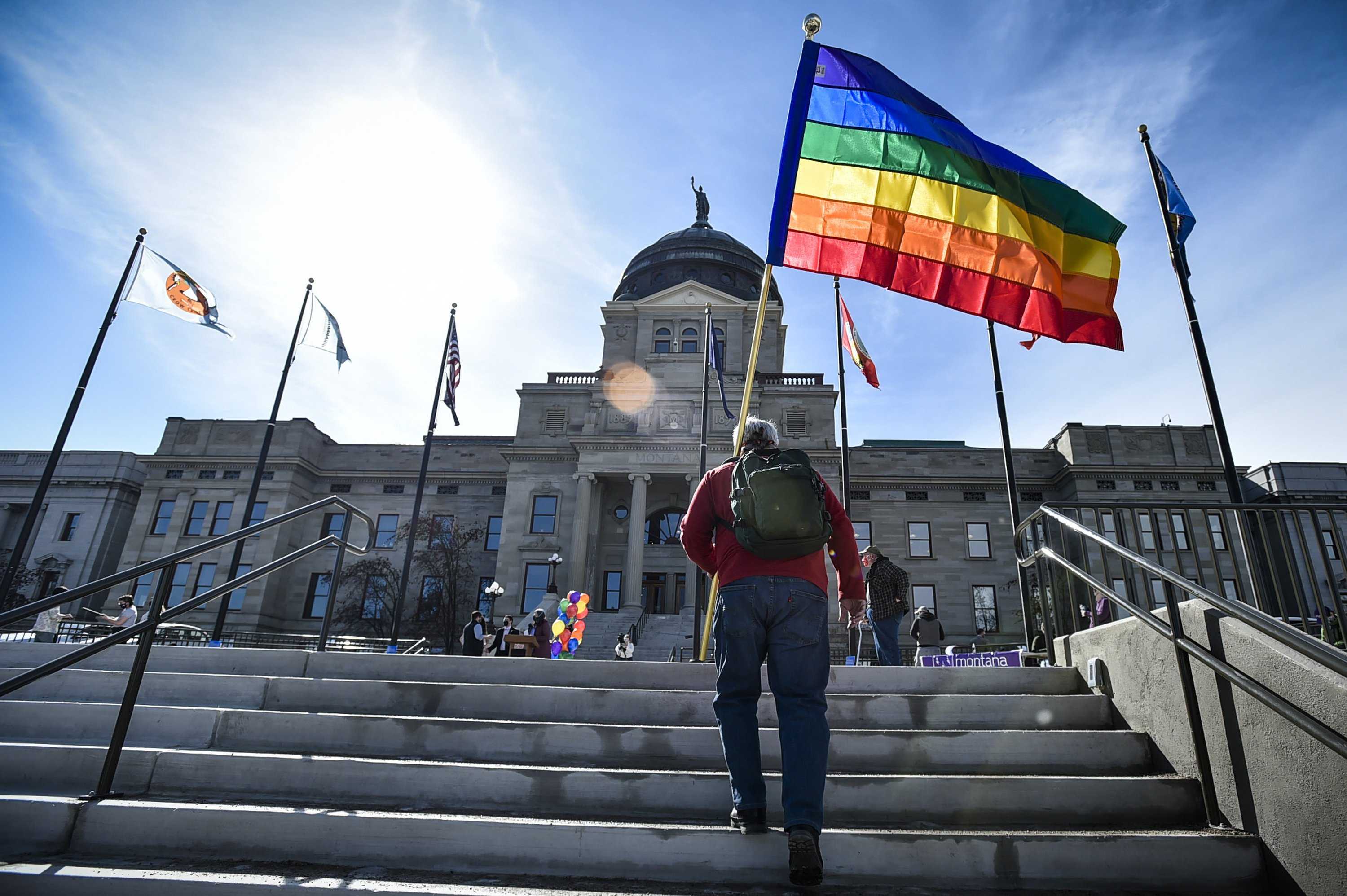By Kaylee Chan | Junior Editor

From bathroom bills to anti-discrimination laws, the government has taken many strides in recent decades to protect LGBT+ individuals from hate and discrimination. However, much of this progress might be undone. This year, thirty-three states are considering or have passed anti-trans bills, all of which foster an environment of hate and will cause unnecessary harm to members of the LGBT+ community.
The lethality of these bills comes mainly from their denial of essential healthcare to transgender people, particularly minors. The Arkansas Save Adolescents from Experimentation (SAFE) Act, which was passed on April 6, denies dysphoria-alleviating treatments to transgender people under 18.
According to CNN, this includes treatments such as puberty blockers and gender affirming surgeries, which are often necessary parts of transitioning.
Medical groups around the country, such as the American Academy of Pediatrics (AAP) and the American Psychiatric Association have denounced this decision as harmful. A study published in the AAP journal found that “when individuals who receive medication to align their body with their gender identity, the risk of suicide decreases by about 70%.”
Blocking access to that medication would have disastrous effects to people planning to transition in those states, making an already inaccessible procedure now an impossibility. The blindsiding of these problems, especially from those supporting the bill, only worsens the ignorance.
In North Carolina, a proposed bill is enforcing the outing of trans kids and anyone who does not fit the gender norm. The Associated Press states that this law “[compels] state employees to immediately notify parents in writing if their child displays ‘gender nonconformity’ or expresses a desire to be treated in a way that is incompatible with the gender they were assigned at birth.”
Not everyone who presents as gender non-conforming is transgender, but the bill targets them as well for choosing to express themselves in a way that deviates from traditional gender roles. This sets a dangerous precedent of weeding out marginalized youth and making them vulnerable to repercussions for their identity, both legally and within their own households.
Other bills, such as the one passed in the Texas Senate on Apr. 14, prevent trans students from participating in school sports under their gender identity.
These policies, if enacted, will only exacerbate the problems that trans individuals face and narrow their relief options. The Center for Disease Control states that “transgender youths in high school appear to face serious risk for violence, victimization, substance use, and suicide.” The solution, the CDC says, is to “[take] steps to create safe learning environments and provide access to culturally competent physical and mental health care.” The aims of these policies run completely counter to this.
Multiple advocacy groups have criticized these bills, such as the Human Rights Campaign and the American Civil Liberties Union. The NCAA has also announced it would only hold events in states without laws against trans athletes, according to NBC News.
However, more needs to be done. The uptick in anti-trans legislation goes against the Biden administration’s stance on LGBTQ+ rights, but there has been no federal response against them. There is also still widespread ignorance about transgender issues, which is often how harmful policies gain support.
If the damage these bills will cause is not recognized, both in the higher levels of government and within our communities, their detrimental effect on the LGBT+ community will go unchecked.






